US Lawmaker Calls On Congress To Be Aggressive About Iran’s Rights Violations
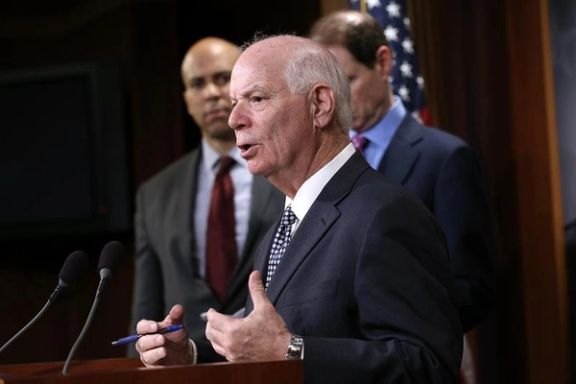
A US Senator has described Iran’s violations of human rights as outrageous, calling on his fellow lawmakers to be more aggressive about addressing the issue.

A US Senator has described Iran’s violations of human rights as outrageous, calling on his fellow lawmakers to be more aggressive about addressing the issue.
Maryland’s Democratic Senator Ben Cardin told Iran International, “The current regime in Iran has so many different challenges, but one that we sometimes do not recognize as well as we should is its violations of internationally-established human rights standards. That's outrageous, just outrageous.”
Answering a question about Iran threatening its people against sending videos to New York-based anti-hijab activist Masih Alinejad with up to 10 years in jail, he said that “We have to speak out, and we need to do what we can to protect the human rights of people who are courageous standing up for just basic international rights.”
Iran’s Headquarters For Enjoining Right And Forbidding Evil, tasked with promoting the clerical regime’s interpretation of Islamic laws, said on July 23 that any cooperation and sharing videos with Alinejad will be considered a violation of Article 508 of the Islamic Republic’s Penal Code, and can result in one to ten years imprisonment.
Cardin called on the Senate to spotlight such human rights violations, saying, “We (in the Senate) already have a sanctions regime against human rights violations. That's been deployed in Iran. We just have to be very aggressive and use the tools that are at our disposal.”
Iran’s security organs have also started arresting women who participated in a nationwide civil disobedience campaign July 12 against hijab.
Following a call by women’s rights activists – including Alinejad -- for civil disobedience with the hashtag of ‘No2Hijab’ social media exploded with dozens of videos and photos of women unveiling in public.
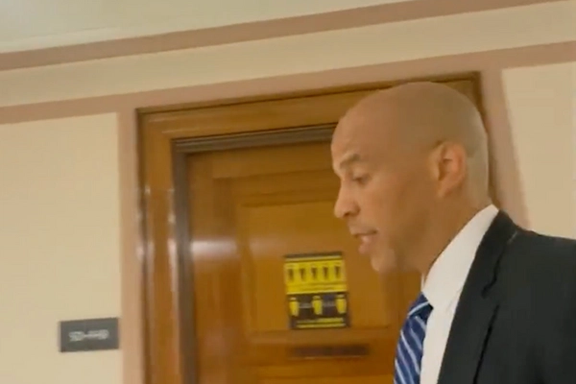
US Senator Cory Booker expressed concerns about growing cooperation between Tehran and Moscow amid the Russian invasion of Ukraine.
Talking to Iran International’s correspondent Arash Aalaei on Wednesday, the New Jersey Democrat said, "I have concerns about Iran's actions in numerous parts of the globe, and it is something my team and I work very hard on, and we take very seriously."
Noting that Congress is working on some measures to stop the Russo-Iranian axis in the Ukraine war, Booker said, "We are already making a lot of efforts. The (Senate Foreign Relations) Committee has taken bipartisan stands and will continue to do what is necessary to check the Iranian Russian and terrorist activities."
US National Security Adviser Jake Sullivan warned twice in July that Moscow appears to be looking at buying Iranian drones and Russian officers even visited a drone base in Iran’s Kashan to review their options.
An adviser to President Volodymyr Zelensky told Iran International on July 25 that Russia and Iran are allies in the Ukraine war and it won’t be a surprise if Tehran supplies drones to Moscow.
On July 26, an Iranian lawmaker confirmed Russia’s request to buy Iranian drones. On the same day, Iranian Civil Aviation Organization announced that Iran and Russia have signed a new agreement to expand cooperation in the aviation sector.
On Wednesday, a top official was quoted by Russia's RIA news agency as saying that Iran will soon start accepting payments made with Russia's Mir bank cards, making it the latest country to adopt the Russian-made alternative to Visa and Mastercard.
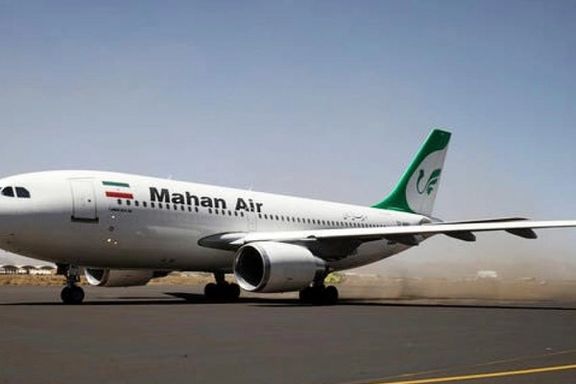
Two Iranian airlines stopped flights to Syria after an Israeli air strike June 10 temporarily shut down the Damascus airport, sources told Iran International.
Western intelligence sources said that Caspian Air and Qeshm Fars Air both have stopped flying to Syria and the only Iranian airline sending planes is Mahan Air, which was sanctioned by the United States in 2011 for transporting weapons to Iranian proxies at the outset of the Syrian civil war.
Caspian Air is also sanctioned by the United States for its links with Iran’s Revolutionary Guard and its extraterritorial Qods (Quds) Force (IRGC-QF). In 2019, the US also sanctioned Qeshm cargo airline as part of Mahan Air and providing material support to the IRGC-QF. All three airlines are believed to have been established and owned by the Revolutionary Guard.
According to information received by Iran International, Mahan Air flights have increased by 30 percent following suspension of service by the other two companies. Aleppo is the destination of most Mahan flights. The same sources said Hamid Arabnejad the CEO of Mahan Air in a recent trip to Syria took part in the inauguration of a new flight to the Aleppo airport.
In addition to transporting weapons, the sources alleged that Mahan Air is also carrying smuggled goods to Syria without paying taxes or customs duties.
Last November, a hacking group calling itself ‘Vigilant sons of the homeland’ in Persian accused Mahan Air of closely linked with IRGC-QF and often issuing fake or falsified air tickets for people with false identities.
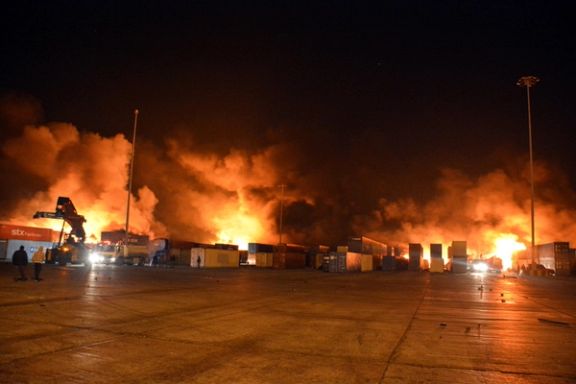
The group also alleged that Mahan was registering its interactions with IRGC-QF in one particular name, which appeared seven thousand times in the company’s records. “We’ve found Mahan does keep records of its suspicious business with QF under the name ‘Hamrah’, and that this business is managed by sardar (general) Golparast.”
The group added that Golparast is also listed as the owner of Qeshm Fars Air which “is a known QF cover company, frequently used to transport munitions throughout the Middle East,” the group said in November.
Israel is known to have conducted operations, including in Iran, to track and prevent IRGC-QF form transporting weapons to other countries.
Iran International reported July 21 that the Israeli Mossad had captured and interrogated an IRGC official inside Iran, about weapons transfers. The man was introducing himself as Yadollah Khedmati, deputy commander of the IRGC logistics and provided information to Mossad about weapons transfers before being freed.
IRGC’s wings for weapons transport
Mahan Air was fully under the control of IRGC-QF when Qasem Soleimani headed the extraterritorial military-intelligence unit. There were many reports about the airline’s role in weapons shipments. Soleimani was killed in a targeted US air strike in Baghdad in January 2020.
Amir Assadollahi a Mahan Air pilot revealed in June 2020 that on one occasion Soleimani in 2013 Soleimani was on a Mahan flight to Syria with 200 passengers and 7 tons of “banned cargo” that landed in Baghdad with orders of the Iraqi government. Soleimani instructed the pilot to bribe inspectors and was able to continue the flight to Syria.
Iran’s former foreign minister Javad Zarif in an audio recording leaked in 2021 had said that Soleimani preferred to use the official Iran Air flights for his purposes to reduce risk to his operations.
However, it seems that with continuing Israeli air strikes on Iranian arms depots in Syria, IRGC-QF prefers to use Mahan Air more often.
Israeli is usually silent about its attacks on Iranian targets in Syria but in recent months there have been repeated attacks on Iranian arms depots. The attack on the Damascus airport on June 10 was the 15th airstrike in Syria attributed to Israel.
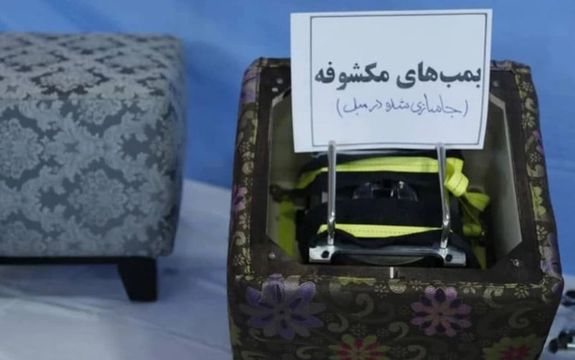
Iran said Wednesday that “Mossad-linked sabotage team” arrested recently before bombing a "sensitive defense center" were members of an outlawed Kurdish rebel group.
The Islamic Republic’s intelligence ministry released a statement on Wednesday, claiming that what it dubbed as Israeli-linked agents, who earlier allegedly planted strong explosives at a facility in the central Iranian province of Esfahan, belong to “the Komala terrorist group.”
The ministry alleged that they were directly chosen by the group’s head Abdullah Mohtadi and were introduced to Mossad, adding that they had transferred vast amounts of equipment and explosives to Iran through Iraq’s autonomous Kurdistan region.
Also on Wednesday, Intelligence Minister Esmail Khatib claimed the ministry carried out “a number of successful operations” against Israel in recent months without disclosing any details.
About a week before Iran announced the major bust of the “Israeli-backed network”, the intelligence ministry had released a statement on July 13, saying it had arrested 10 armed members of a Kurdish separatist group in northwestern parts of the country. Extra details were added to the story bit by bit during the following days.
Iran has not introduced any evidence linking the detained person with Israel. Since May, several Revolutionary Guard personnel were killed or died in Iran and Tehran blamed Israel for the operations. In June, a large scale purge took place among IRGC intelligence cadres.
The Islamic Republic calls the Kurdish armed groups in the western provinces of Iran, "terrorist groups" or "anti-revolutionary." Generally, the Kurdish parties − including Komala and the Kurdistan Democratic Party of Iran (KDPI) − favor Kurdish autonomy within a federal Iran.
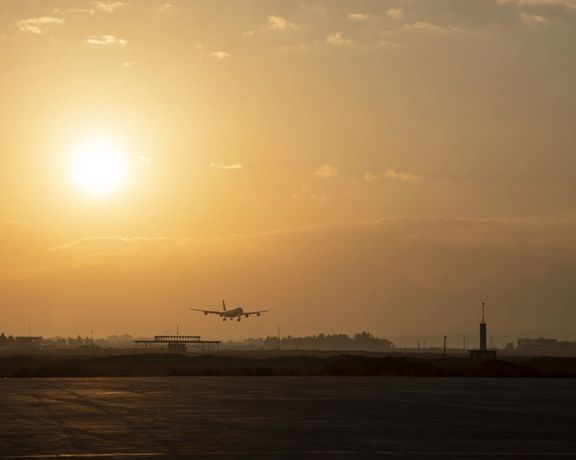
Iran and Russia have signed a new agreement to expand cooperation in the aviation sector, including increasing the number of passenger flights to 35 per week.
Spokesman for the Iranian Civil Aviation Organization Mir-Akbar Razavi announced the signing of a Memorandum of Understanding between Tehran and Moscow on Tuesday after a meeting between the head of the Iranian Civil Aviation Organization Mohammad Mohammadi-Bakhsh and a Russian deputy transport minister, whose name he did not mention.
The airlines of the two countries are now allowed to operate unlimited cargo flights without any capacity restrictions within the framework of the above agreement, he added.
The official said the two countries will sign another agreement on providing logistics services including maintenance and support for Russian planes as well as exporting parts and equipment manufactured in Iran to Russia.
Earlier on Tuesday, July 26, an Iranian lawmaker said military cooperation between Tehran and Moscow has upset the political equations of the global order, confirming Russia’s request to buy Iranian drones.
US National Security Adviser Jake Sullivan warned twice in July that Moscow appears to be looking at buying Iranian drones and Russian officers even visited a drone base in Iran’s Kashan to review their options.
Secretary of Defense Lloyd Austin and Chairman of the Joint Chiefs of Staff Gen Mike Milley also confirmed that Russia is planning to obtain Iranian drones to strengthen its weakening position in battles.
An adviser to President Volodymyr Zelensky told Iran International on July 25 that Russia and Iran are allies in the Ukraine war and it won’t be a surprise if Tehran supplies drones to Moscow.
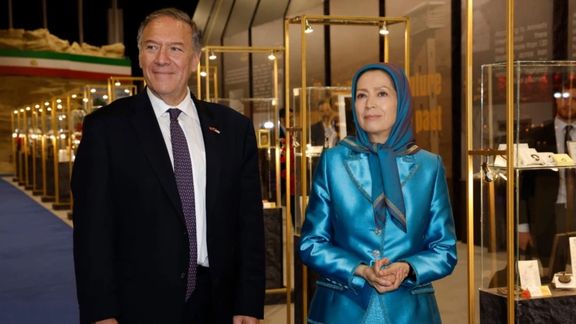
Iran’s Fars news website affiliated with the Revolutionary Guard Wednesday called for targeting an opposition group in Europe with ballistic missiles and drones.
In an article with a long historical background on violent terror acts by the Mojahedin Khalq organization, known as Mek in the 1980s, the IRGC mouthpiece insisted that Iran has the Islamic Republic has the right to self-defense and it would be justified if “it employs hard power against terrorists. The capabilities of Iran’s attack drones and ballistic missiles can be used to hit the center of the [Mek] in Albania without any legal impediment.
The article added that authorities in Tehran should issue the necessary warning to the Albanian government, which is hosting a few thousands MeK members, and follow it up with military action.
But Fars also mentioned “host governments”, where the MeK might have a presence, which could include France and others in Europe.
“If host governments refuse to expel and extradite the hypocrites (a term used by Tehran for the MeK), they should be threatened with reciprocal action…based on the doctrine of the Islamic Republic to fight security threats at their source,” the article said. It went on to cite the principle of “Responsibility to Protect” the nation and the UN Charter’s article 51, “which allows military action to preserve international peace and security.”
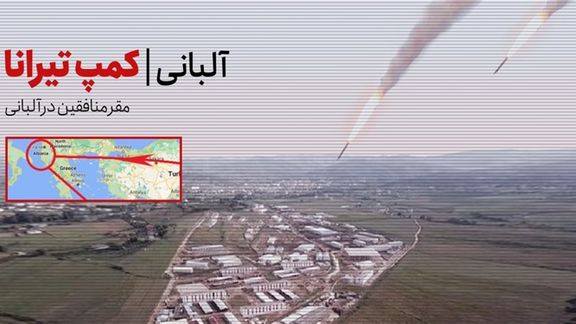
The Mojahedin were a revolutionary group engaged in opposition to the monarchy in the 1970s and carried out armed attacks. They fully backed Ayatollah Ruhollah Khomeini’s decision to set up the Islamic Republic in early 1979 after Shah Mohammad Reza Pahlavi left the country and Khomeini returned from exile. However, tensions rose between the group and the clerical regime taking shape, which led to mutual violence.
The MeK leadership fled to Iraq, which had attacked Iran in September 1980, and received protection from the Iraqi dictator Saddam Hussein who helped them form a militia and fight against Iran. The Islamic Republic counts this as high treason, in addition to violent acts the group carried out inside Iran.
In 1988, the Islamic Republic carried out a decision blessed by Khomeini to kill around 3,000 members of the group serving their prison sentences. Many say this is equivalent to war crimes and a crime against humanity.
An Iranian diplomat who plotted to bomb a MeK rally in Paris was convicted and sentenced to 20 years in jail on terrorism charges by a Belgian court, and a former prison Guard was recently sentenced to life in Sweden for his role in the 1988 prison killings.
MeK members and sympathizers gradually migrated to Europe and North America where they formed a close-knit organization, sometimes likened to a sect, which increasingly changed its path as a terror group to a relatively rich lobbying organization in the West against the clerical regime. However, a few thousand members who had stayed behind in a camp in Iraq were transferred to European counties and Albania by the United States and the United Nations in 2016.
The same year the group opened an office in Albania and is generally referred to as an Albania-based organization. Until a few years before the move, MeK was listed as a terrorist organization by the United States and the European Union, but as it became a lobbying and political entity, the designations were lifted.